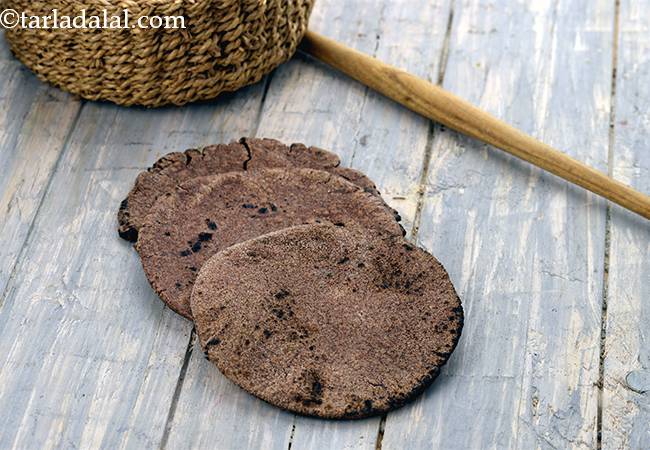Click here to view Mooli Moong Dal recipe. Mooli or white radish is extensively used in Rajasthani cooking unlike in other parts of India where it's merely considered a salad vegetable. Radish adds sharp and pungent accents in this bland moong dal. And like all traditional Rajasthani recipes, this dal too, is tempered with ghee. Some households even add tender radish leaves along with the radish to provide extra flavour to the dal. You can do that too!
Is Mooli Moong Dal healthy?
Yes, this is healthy. But restrictions apply to some.
Let's understand the Ingredients.
What's good.
1. Mooli (Radish) : Radish has many heart protective nutrients like Vitamin C, folic acid, calcium, potassium and flavonoids. They are an amazing source of fibre which helps in lowering cholesterol levels. The vitamin C in radishes is an antioxidant and anti-inflammatory which can help arthritis patients. Potassium from radish can help lower your risk of kidney stones. See detailed benefits of radish.
2. Yellow Moong Dal : The fibre (4.1 g in ¼ cup) present in yellow moong dal prevents the deposition of bad cholesterol (LDL) in the arteries which promotes a healthy heart in turn. Packed with nutrients like zinc (1.4 mg), protein (12.2 mg) and iron (1.95 mg), yellow moong dal helps to maintain the elasticity of your skin and help to keep it moist. Fiber, potassium and magnesium from yellow moong dal will work together to regulate blood pressure and soothe the nerves and is diabetic friendly. See here for details of 7 amazing benefits of yellow moong dal.
3. Ghee : Other than calories and fats, the only nutrients that ghee is rich in are the vitamins – all of which are fat-soluble. All the 3 vitamins (Vitamin A, Vitamin E and Vitamin K) are antioxidants which have a role in removing free radicals from the body and protecting our cell as well as help in maintaining skin health and glow. Ghee is an excellent, high-quality selection medium of cooking because of its high smoke point. As compared to most oils and butter, ghee can handle a smoke point of 230°C, 450°F, thus its less prone to oxidant and destruction of nutrients. Yes, ghee does contain cholesterol, but some amount of cholesterol is needed by the body. Cholesterol has some functions to play too. It is necessary for hormone production, brain function, cell health and lubricating the joints. It is, in reality, a high quality fat for the body and brain. Ghee is loaded with fats but that’s medium chain fatty acids (MCT) which aid in weight loss. Ghee is healthy for daibetics in small amounts and you need to check your fat intake at the same time. Learn to easily make your ghee at home which is free of preservatives. See benefits of ghee.
Can diabetics, heart patients and over weight individuals have Mooli Moong Dal ?
Yes, this recipe is good for diabetics, heart and weight loss. The fibre (4.1 g in ¼ cup) present in yellow moong dal prevents the deposition of bad cholesterol (LDL) in the arteries which promotes a healthy heart in turn. Radish has many heart protective nutrients like Vitamin C, folic acid, calcium, potassium and flavonoids. Yes, ghee does contain cholesterol, but some amount of cholesterol is needed by the body. Cholesterol has some functions to play too. It is necessary for hormone production, brain function, cell health and lubricating the joints. It is, in reality, a high quality fat for the body and brain. Ghee is loaded with fats but that’s medium chain fatty acids (MCT) which aid in weight loss.
Combine dal with bajra roti, jowar roti, radish nachni roti recipe , basic ragi roti recipe, and whole wheat roti, whole wheat bhakri recipe to make a healthy combination. Note that when you combine any dal with any cereal like bajra, jowar, ragi, buckwheat, barley or whole wheat to enhance the protein value.

Basic Ragi Roti, Nachni Roti
Can healthy individuals have Mooli Moong Dal?
Yes.
Mooli Moong Dal is good for
1. Healthy Recipes Lifestyle
2. Weight Loss Dals
3. Diabetics with heart issues
4. Healthy Heart Dals
5. Weight loss after Pregnancy
6. Kids
7. Cold and cough
8. Diabetic Dals
9. Pregnancy First Trimester
Mooli Moong Dal is high in
1. Vitamin C : Vitamin C is a great defence against coughs and colds.
2. Folic Acid : Folic acid is an essential vitamin required throughout pregnancy.
Note : a recipe is deemed high in a Vitamin or mineral if it meets 20% and above the recommended daily allowance based on a 2,000 calorie diet.
How to burn 123 calories that come from one serving of Mooli Moong Dal?
|
Walking (6 kmph) = |
37 |
mins |
|
Running (11 kmph) = |
12 |
mins |
|
Cycling (30 kmph) = |
16 |
mins |
|
Swimming (2 kmph) = |
21 |
mins |
|
|
|
Note: These values are approximate and calorie burning differs in each individual.